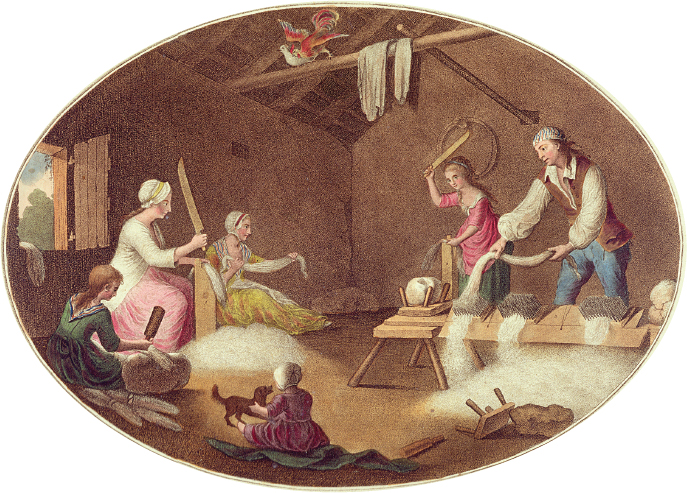How and why did rural industry intensify in the eighteenth century?
TTHE GROWTH OF POPULATION increased the number of rural workers with little or no land, and this in turn contributed to the development of industry in rural areas. The poor in the countryside increasingly needed to supplement their agricultural earnings with other types of work, and urban capitalists were eager to employ them, often at lower wages than urban workers received. Cottage industry, which consisted of manufacturing with hand tools in peasant cottages and work sheds, grew markedly in the eighteenth century and became a crucial feature of the European economy.

The Linen Industry in IrelandMany steps went into making textiles. Here the women are beating away the woody part of the flax plant so that the man can comb out the soft part. The combed fibers will then be spun into thread and woven into cloth by this family enterprise. The increased labor of women and girls from the late seventeenth century helped produce a significant expansion in the production of textiles in western Europe. (Private Collection/The Stapleton Collection/The Bridgeman Art Library)